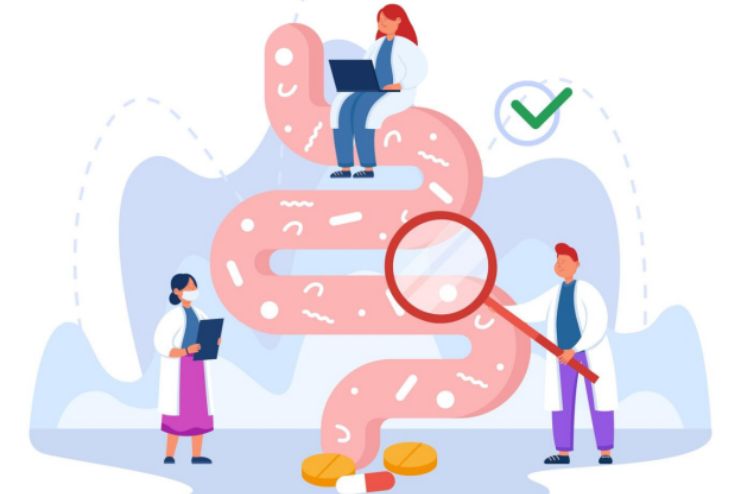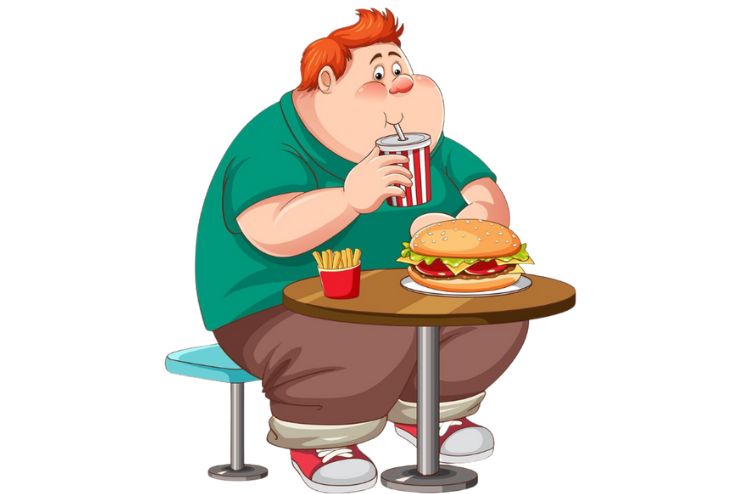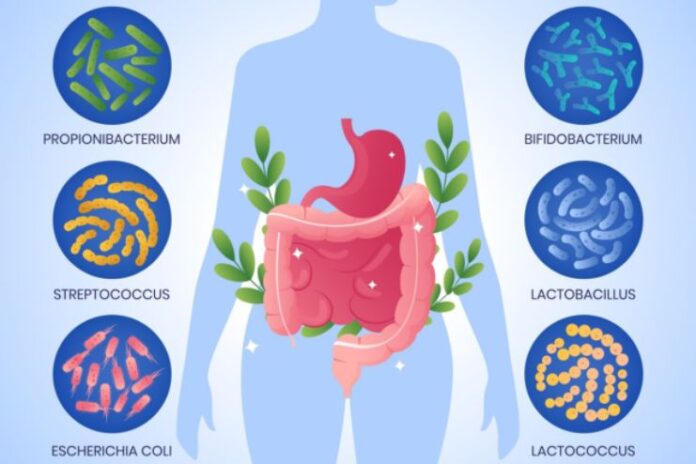Affiliate Disclaimer
Some links in this article are affiliate links. We may earn a small commission if you make a purchase through these links, at no extra cost to you. We only recommend products we find useful to our readersSlow-paced work and lifestyle in the present-day world have set the trend for many to eat diets comprising heavily of processed food items. The convenience of these food variants often sets the norms of modern eating habits—packaged snack items, frozen dinners, sugar-filled cereals, and fast food. However, while these are quick and, one can hardly deny, tasty, processed food can also take a toll on gut health.
The gut plays an active role in digestion, immune response, and mental activity. In simple words, your gut is the second brain of the body. But what happens when your diet comprises processed foods? How do these artificial additives, preservatives, and low-fiber ingredients affect your gut microbiome and digestive health?
In this article, we’ll explore how processed food digestion, gut bacteria balance, inflammation, and leaky gut syndrome contribute to the risk of chronic health problems. We’ll also share a few solutions at the end to help restore gut health and support wiser food choices for a healthier digestive tract.
Also, Read: Is Dairy Really Bad for Your Gut? Here’s What The Science Says
Understanding Processed Foods

Processed foods refer to many food products that have undergone some alteration from their natural form, generally by industrial methods such as washing, cutting, heating, pasteurizing, canning, freezing, drying, dehydrating, mixing, or packaging.
These modifications are generally made for the sake of convenience, safety, shelf life, or taste. Bagged spinach, roasted nuts, canned tomatoes, white bread, instant noodles, frozen food items, canned soups, are a few examples of processed foods.
This means that not all processed foods are the same. The difference is huge between minimally processed foods and ultra-processed foods.
Minimally Processed Foods: These foods are subjected to slight modifications, primarily for preservation or safety, and otherwise retain their nutritional integrity. Examples of such foods include washed and packaged fruits and veggies, pasteurized milk, and fresh whole-grain baked bread.
Ultra-Processed Foods: These items undergo a lengthy process and contain extra ingredients such as preservatives, sweeteners, and artificial colors and flavors. They can hardly be similar to the original state. Examples include sugary drinks, snacks, ready-to-eat meals, and packaged meat.
Regular consumption of ultra-processed foods has been linked to health issues such as obesity, high blood pressure, and a greater risk of chronic diseases (R).
The Gut Microbiome: Your Body’s “Second Brain”
The human gut houses a vast universe of trillions of microorganisms. This intricate ecosystem is made up of bacteria, viruses, fungi, and other microbes that play important roles in the body’s various functions.
Digestion and Nutrient Absorption: Beneficial gut bacteria break down complex carbohydrates, fibers, and proteins, thus facilitating the absorption of the required nutrients.
Immune System Regulation: The gut microbiome plays a vital role in developing and regulating the immune system by protecting the gut barrier from harmful pathogens. It also produces short-chain fatty acids, which have anti-inflammatory properties.
Mood Regulation and Mental Health: The gut-brain axis is the two-way communication between the gut and the brain. Gut bacteria play a role in synthesizing neurotransmitters such as serotonin and dopamine, which are related to mood, stress, and cognition.
Nutrition is one of the most significant factors affecting the gut microbiome’s composition and diversity. A balanced diet rich in fiber, prebiotics, and probiotics supports a healthy gut microbiome, aiding in digestion, immunity, and mental well-being.
The gut microbiome essentially indicates that dietary habits are more important to health and subsequent disease prevention.
How Processed Foods Impact Your Gut Health

The digestive system has been negatively affected by the consumption of processed foods, which subsequently leads to gut disturbance, inflammation, and imbalance within the gut microbiome. Here’s how gut damage happens.
1. Discouraging the Balance of the Gut Microbiome
Processed foods contain artificial additives, preservatives, and emulsifiers like carboxymethylcellulose and polysorbate 80, all of which have a damaging impact on gut flora. These alterations in the gut microbiome mean a reduction in good bacteria and an increase in bad bacteria, triggering inflammation, which may cause colon cancer (R).
2. Triggers Inflammation and Gut Permeability (“Leaky Gut”)
Many processed foods contain ingredients that irritate the gut lining and increase gut permeability, allowing toxins and harmful bacteria to enter the bloodstream. This can lead to chronic inflammation, autoimmune disorders, and metabolic diseases (R).
3. Causes Digestive Troubles
A person who mostly consumes processed foods has a poor fiber diet, which is essential for healthy digestion. Without sufficient fiber, the person might suffer from constipation; chemical additives and preservatives may cause bloating, gas, and discomfort. Some of which are even considered toxic to your gastrointestinal tract (R).
4. Impacts Mental Health (Gut-Brain Connection)
The gut microbiome is closely linked to mood and plays a key role in producing neurotransmitters like serotonin and dopamine. Therefore, consuming processed foods ruptures this balance, increasing the likelihood of developing anxiety, depression, and brain fog (R).
Your gut microbiome and health will benefit from reducing the intake of processed foods and eating whole foods that are rich in fiber.
Also, Read: Gut Health Hacks: The Best Morning Foods to Kickstart Digestion
Long-Term Health Risks of a Processed Food Diet

Eating processed foods regularly comes with some severe long-term health effects, and among those effects are the following:
1.Obesity and Metabolic Disorders
Processed foods often contain high levels of added sugars, unhealthy fats, and empty calories, which can lead to weight gain and increase the risk of obesity. Being overweight increases the risk of metabolic disorders, such as type 2 diabetes and metabolic syndrome (R).
2. Cardiovascular Diseases
People who tend to eat processed food are bound to have an increased risk for heart disease and even hypertension. Consumption of processed foods high in sodium increases blood pressure, while unhealthy oils tend to result in arterial plaque formation (R).
3. Higher Risks of Cancer
A 5-year study involving over 100,000 people found that every 10% increase in ultra-processed food consumption was associated with a roughly 12% higher risk for cancer (R).
4. Nutritional Deficiencies
Most nutrients are not found in processed foods, and this causes deficiencies, which can affect the performance of various bodily functions and the general health of an individual (R).
5. Mental Health Disorders
The higher the intake of ultra-processed foods, the higher the risk of having poor mental health. These may include incidences of anxiety and depression (R).
So, reducing processed food intake and making the diet richer with natural and unprocessed food reduces health risks greatly.
How to Heal Your Gut & Reduce Processed Food Intake

How do gut health and reducing the intake of processed food enhance overall health?
1. Add More Fiber to Your Diet
A high-fiber diet promotes digestion and a healthy gut microbiome. Adding more fruits, vegetables, whole grains, and legumes to your diet will provide you with important nutrients that will promote good bacteria in your intestines.
2. Try Fermented Foods
Fermented foods such as yogurt, kefir, kimchi, and sauerkraut are great sources of probiotics, introducing beneficial bacteria that support gut health.
3. Go for Whole Grains and Not Refined Grains
Replace refined grains with whole grains; for example, brown rice instead of white rice. The fiber and nutrient intake from brown rice would be higher in supporting a diverse gut microbiome.
4. Always Drink Water
Intake of sufficient water is very important in digestion as well as in maintaining a healthy gut. Drinking a minimum of 2 liters of water throughout the day, especially during the day, is essential for good digestive health.
5. Reduce Processed Foods
The most crucial step toward gut health is reducing ultra-processed food consumption. They are often full of additives, devoid of nutrients, and generally bad for the gut microbiome. Replacing processed foods with whole foods will eventually improve your health.
6. Planning and Preparing Meals
Cooking meals at home usually provides better control over what goes into the meals and eventually limits processed food intake. Plan meals to enjoy all the health benefits of a well-balanced diet, essential for gut health.
7. Control Stress Level
Chronic stress will damage your gut health as well. There are a variety of ways you can manage stress, including exercising, meditating, or doing yoga, to relieve stress, resulting in improved gut health.
Also, Read: The One-Day Gut Reset: How to Recover After Eating Junk Food
Conclusion
Wrong eating habits are detrimental to the gut and can create an imbalance in the microbiome, promote increased inflammation, interrupt the functioning of the gastrointestinal system, and amplify mental issues. Metabolically, other risks may develop, such as obesity, metabolic disorders, heart attacks, and a compromised immune system.
Balanced dietary intake, conscious eating, and food choices that benefit gut health will help restore gut balance and health. Focusing on whole and unprocessed foods, good fiber intake, probiotic-rich fermented foods, and proper hydration is essential for gut healing.
Avoiding chemically synthesized additives, striving for stress management, and choosing a gut-friendly diet can help sustain good digestion, increase vitality at the cellular level, and promote long-term health benefits.
Consistently maintaining these changes will help keep your gut microbiome balanced, nourished, and functioning optimally for digestion, benefiting both physical and mental health now and in the long run.
References
- https://www.webmd.com/diet/what-are-processed-foods
- https://cdhf.ca/en/what-are-processed-and-ultra-processed-foods/
- https://www.goodrx.com/well-being/diet-nutrition/what-does-processed-foods-mean
- https://www.mdanderson.org/cancerwise/7-examples-of-processed-food.h00-159621801.html
- https://www.thesun.co.uk/health/33894075/common-foods-harm-fertility-doctor-warning/
- https://www.heart.org/en/news/2020/01/29/processed-vs-ultra-processed-food-and-why-it-matters-to-your-health
- https://my.clevelandclinic.org/health/body/25201-gut-microbiome
- https://www.virtua.org/articles/what-your-gut-has-to-do-with-boosting-your-mood-and-immunity
- https://www.health.com/foods-for-gut-health-11689997
- https://www.pihhealth.org/wellness/articles/how-ultra-processed-foods-affect-your-gut-and-health/
- https://www.nature.com/articles/s41575-024-00893-5
- https://lhsfna.org/the-many-health-risks-of-processed-foods/
- https://nutritionsource.hsph.harvard.edu/processed-foods/
- https://siteman.wustl.edu/for-your-health-ultra-processed-foods-and-health-risks/
- https://www.health.harvard.edu/staying-healthy/feed-your-gut
- https://www.ama-assn.org/delivering-care/public-health/what-doctors-wish-patients-knew-about-improving-gut-health
In this Article















